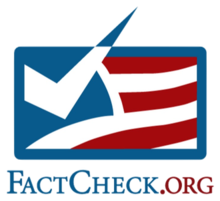TRUST ME is a feature-length documentary exploring human nature, information technology, and the need for media literacy to help people trust one another, bring them together and create...
Berklee Film Series Presents: Trust Me (10/18/2024)
A conversation with the film's Impact Producer, Rosemary Smith:





An interactive Media Bias Chart to help navigate and understand news source biases. Analysts come from a wide political spectrum and follow a careful, robust methodology to rate the news. You do not need to create an account to use Berklee's account. If you are getting an error message try allowing third party cookies or refreshing your browser.
An interactive Media Bias Chart to help navigate and understand news source biases. Analysts come from a wide political spectrum and follow a careful, robust methodology to rate the news. You do not need to create an account to use Berklee's account. If you are getting an error message try allowing third party cookies or refreshing your browser.
Click to view the static version of this Media Bias Chart. Visit here for an interactive version.
| Funny | Fake | |
|---|---|---|
| Definition | [Funny] Satire: "a way of criticizing people or ideas in a humorous way, especially in order to make a political point, or a piece of writing that uses this style" - Cambridge English Dictionary | Fake News: "false stories that appear to be news, spread on the internet or using other media, usually created to influence political views or as a joke" - Cambridge English Dictionary |
| Purpose | political commentary, social criticism, exposing irony | Deceive, confuse, and manipulate |
| Related Terms | satire, parody, humor | hoax, propaganda, disinformation, fraud, trolling |
| Website Design and other Indicators |
- looks like real news - includes an "About" page that indicates the satirical purpose of the publication - The URL and/or web domain will be distinctive to that publication and you can easily find out who is responsible for the content, along with contact information (e.g. conduct a "WHOIS" search to find out who owns the domain) - It will be clear who is responsible for the content, either through an author byline, an "About" page, contact information, or known personalities affiliated with the content. |
- looks like real news - may include an "About page" that will be written in a way to present itself as legitimate - The URL and/or web domain will be generic or deceptive (e.g. it is made to look like a well-known news source's URL but will be slightly different) - It will appear as though a credentialed person or entity is behind the content. However, upon deeper investigation, it will be less obvious who is truly responsible for the content. Research may reveal that the "authors" are not real and/or that this content is created by a foreign entity or an algorithm with the intent to be deceptive. |
| Examples | - Fake news websites |

Library Databases
Access with your OnePass, these include full-text articles, including the most recent articles from these publications' print editions.
A spreadsheet of the complete list of the 3,500+ publications available in this database, including descriptions and countries of publication (as of December 2023)
News Websites

Contact us at askalibrarian@berklee.edu or chat with a library employee (check the homepage for current chat hours)